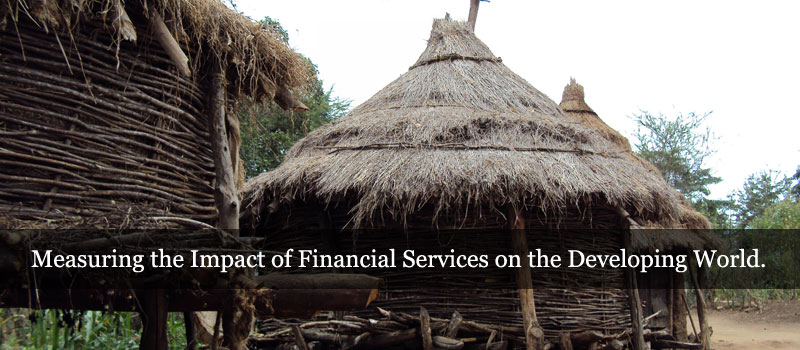Does M-PESA in Kenya Crowd Out Corner Store Bankers?
Geetha Nagarajan. August 30, 2010.
M-PESA (Mobile Money) in Kenya is an agent-assisted, mobile phone-based, person-to-person payment and money transfer system. It was launched in Kenya on March 6, 2007. By June 2010, there were 10.2 million people registered nationwide with M-PESA. They were served through 18,977 M-PESA agents and a monthly average of US$380 million was transferred through the system (Safaricom website, July 2010).
When M-PESA began in 2007, many small unregistered retail shops that existed in most of the villages in Kenya were found to be active in making small loans to the area residents (Synovate, 2007). Over three fourths of the people surveyed in 2007 from 69 districts in Kenya who reported any outstanding loan also reported a loan from a shop keeper who sold them goods on credit and occasionally provided small short term cash loans to established clients (called as suppliers' credit). The shopkeepers generally used the mechanism to firm up their clientele base and also to invest their liquid cash in the absence of banks to store it. They generally did not have any sophisticated IT systems or enter into any formal arrangement with their borrowers to enforce these contracts. They only relied on local information, long term relationships, and reputation.
Some of the large shop keepers, with the introduction of M-PESA, became registered M-PESA agents to facilitate deposits, withdrawals, transfers and bill payments in their area. They also acquired IT systems to manage the M-PESA transactions in real time. Many of these shop keepers reported increased foot traffic in their store after adding M-PESA into their business.
But, did adding M-PESA phase out their role as local lender? Did those that cannot access banks nor M-PESA lose their reliable local lender?
In my recent visit to Kenya in July 2010, I explored the issue with some local residents and a couple of M-PESA agents in Kitui, Kenya.
Well, informal lenders in these shop keepers are still alive but with a different twist!!
I witnessed a well respected person in the community call up an M-PESA agent that he uses frequently to obtain some amount as a day loan that could be put into his M-PESA account so that he could pay his daughter's school fee on time. The agent extended the loan from his till hoping that he could replenish it later in the day. I also witnessed another elderly lady obtaining a supplier's credit on the groceries she purchased that day at the store that also operates a M-PESA window. Indeed, she never purchased goods from this store until she came there about a year ago to start withdrawing her remittances sent through M-PESA. She is now recognized in that store for her fortnightly visits to withdraw her remittances from her son in Nairobi. She was extended the loan with a promise that she will repay in a week when she gets her remittance. The agent acknowledged that foot traffic has increased in his grocery shop because some of his M-PESA clients also shop at his store. While he still extends small supplier's credit to area residents who are poor to pay upon purchase, he has reduced that pool of clients. But, he has expanded his pool of "short term borrowers" through a new set of clients with reliable sources of income such as the well respected person above. One another M-PESA agent reported serving as a money lender for his frequent M-PESA clients on Sundays when M-PESA shops are closed for the business.
The nagging question, however, still lingers: Would M-PESA crowd out loans from large shop keepers who are liquid as they move away from their traditional clientele who are un-banked or non M-PESA users? With the introduction of M-KESHO—a partnership between Equity bank and M-PESA—which also uses M-PESA agents, along with current enthusiasm among the commercial banks and SACCOs in Kenya to link up with M-PESA to beat competitions, will the informal practices of suppliers credit for the poor decline? What are the implications of the trend on the unbanked or non M-PESA clients?




